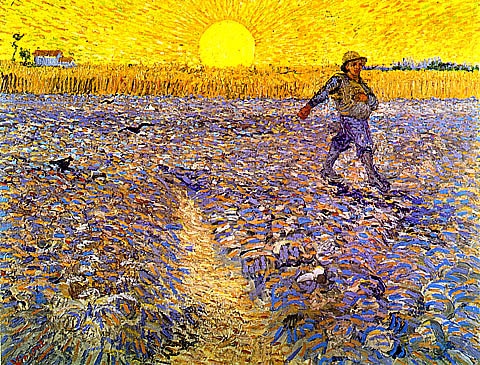|
At General Convention 2017, John DeMuth and I presented a couple of workshops on behalf of the Nazarene Organic Church Task Force. Our goal was threefold:
Busting Myths about the Organic Church
3. The ministry of Organic Churches must always be supported (re: financed) by Legacy Churches. 4. The ministry of Organic Churches must always be supported (re: financed) by Legacy Churches. 5. Organic Churches will be in competition with Legacy Churches. 6. Organic Churches always eventually mature into “real” churches. 7. We must have ordained elders (or at least district licensed ministers) leading Organic Churches. 8. Organic Churches will fall into doctrinal error because they have no qualified oversight. 9. We do not have enough money to start an Organic Church. 10. We do not have a building where Organic Churches can meet. 11. Our local Legacy church is not strong (big/good/wealthy/anything) enough to plant an Organic Church. 12. There are too many organizational hurdles to doing something new. We addressed some of these myths directly, and hope that some of you will send us some great ways to respond to these myths from various contexts. Of course, there are and will continue to be a lot of new “challenges” or “problems” regarding logistics and policy that need creative solutions from the people, the pastor and the district superintendent. In other words, we will be doing things we’ve never done before. And, this is invigorates the Church in life-giving ways. Defining Organic Church for Nazarenes
“Any group that meets regularly for spiritual nurture, worship, or instruction, with an identified leader and aligned with the message and mission of the Church of the Nazarene, may be recognized as a church and reported as such for district and general church statistics.” (BGS ruling, 08 December 2015) Within this definition, the Nazarene Organic Church Task Force defined what it means to be an organic church at our annual meeting in February 2017: “An organic church is the natural, relational expression of God’s mission for multiplying His people in the local culture.” And, so a mashup [e.g. midrash] of these definitions looks something like this: “Any group that (1) meets regularly [natural and relational] for (2) spiritual nurture, worship, or instruction [natural = mDNA*], with an (3) identified leader [relational] and (4) aligned with the message and mission of the Church of the Nazarene [expression of God's mission] , may be (5) recognized as a church and reported as such for district and general church statistics [multiplying His people in the local culture].” (BGS ruling, 08 December 2015) (*According to Neil Cole in Organic Church (2005), missional DNA for a church is Dynamically proclaiming truth, Nurturing relationships, and Activating mission and ministry). Organic churches should be accessible, simple, and reproducible in any context. Examples of Organic churches are:
What if these organic expressions of church compete with my legacy church? This a great question, but it's not really about Organic vs. Legacy. So then, what's it about? It is about the Organic churches in partnership with Legacy churches as parent-affiliated congregations (PAC). See the PAC information page at the US/Canada Regional website or just Google "Nazarene PACs." This is really the ideal situation. Within a denomination, no local church should find or think of itself as all alone in the work of the kingdom. It is healthy and natural for some disciples to multiply outward and away from the local church. It's not about schism but about sending. As J.D. Greear and Mike McDaniels put it: "It's not about seating capacity but sending capacity." It is not turning away from others but being deeply together with others. It is about finding a way to take the natural desire to multiply and turning it into a fresh expression of the church. Great video testimonials from the Anglican Communion in the UK and US can be found at the Fresh Expressions Youtube channel. Some people might see the organic expression of church as an entry point to the “real church” when in fact these new expressions already exemplify the BGS definition and the organic definition of church. It is not just a small group fellowship if there is also Bible proclamation and active engagement in the surrounding community. I think, personally, there are more churches out there that do not realize that is exactly what they are. These groups are, in fact, churches (not just new "works" but the very goal of our missional work). Conversely, there might also be worship gatherings of church folks that no longer perpetuate the fully expressed missional DNA of nurturing relationships and active missional engagement. There may be "missional" communities that have figured out how to care for each other but have neglected engagement with their host communities. And, there are organized groups of Nazarene members that used to be churches, but now with mutated DNA, that need to be renewed or restarted. I'll address here something that was not yet a major issue prior to General Assembly, but now is the huge elephant in the room regarding local leadership. Who's in charge here, who's the "identified leader"? Who's the pastor? Now, Resolution MED-518 is now approved by the General Assembly that the title of Pastor may be given only to assigned licensed and ordained ministers. Resolution MED-522 partially remedied this situation by allowing the title of "PAC Pastor" but still only for assigned licensed and ordained ministers (PAC is described below). Personally, I think every organic church pastor needs a local license at bare minimum, but this relationship assumes a parent church is available and already in partnership. As a wise elder statesman of the church once told me, "The Manual is a set of guidelines not rulings." I would say if there is confusion in how to "identify leaders" in the local context, contact the D.S. in jurisdiction or the US/Canada Regional Office, and we'll try to work it out according to what will work best for the local context. I have found Nazarene leadership to be accommodating when God is at work, and this is why I'm thankful for a flexible polity. It's important to stay open to the Lord's leading, and try not to take something working over there, and squeeze it into what needs to happen here (and vice versa). The Good News is for every context, as long as we're listening for what news is good for this particular place. Stay on the look out for third spaces in the local community. Ray Oldenburg, an American sociologist in his book The Great, Good Place (1989), identified three spaces in daily life: 1) First space in Home, 2) Second space in Work, and 3) Third Spaces where people find belonging and connection. These places could be coffee shops, barbershops, public parks, town squares, beaches, bars, pubs, rooftop patios, libraries, etc. It is simply the places people gather for conversation and interaction when not at home or work. How to Start an Organic ChurchStarting organic churches, however, is not about duplicating what others do. It is not following someone else’s pattern or steps. It is gathering, tried-and-true principles, listening to God, and meeting people locally--where they are. As Neil Cole reminded us, "How you start makes all the difference in how you finish.” (Cole, 2005, page 81). Remember and repeat to get started.
. . .
A couple of days before General Convention, I received this email from Leanne: “Just stumbled across NOCN [Nazarene Organic Church Network], and it has brought a smile to my face. I attend a very small and dying Naz church in Australia. After years of trying to keep everyone but myself happy I have decided to take a leap with my husband a couple of friends and our new pastor and we are starting a home church ...... So I am really happy to see that we are not the only ones ...... [looking] for real connections with people and trying to do ministry what I like to think of as ‘Jesus style.’ Finding your site tonight has been a real encouragement that we are taking the right step!" The only necessary piece in any organic church starter kit is simply you being guided by the Spirit. So, what are you waiting for? Go get started, and let us know about it at OrganicNazarene.org.
1 Comment
1/27/2022 07:36:00 am
Excellent article! Your post is essential today. Thanks for sharing, by the way.
Reply
Leave a Reply. |
Bio
teacher, writer, Archives
August 2022
Categories
All
|






 RSS Feed
RSS Feed